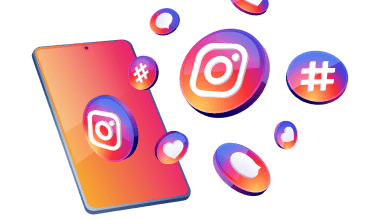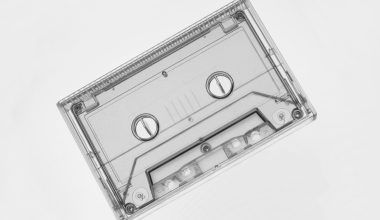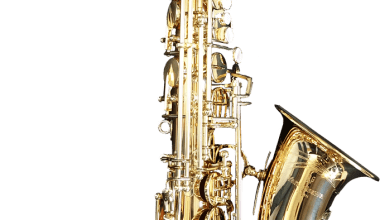For independent artists, distribution deal for independent artists making it in the music industry can often feel like climbing a steep mountain. You have the talent, the songs, and the drive, but reaching your audience and standing out among countless others can be a daunting challenge. This is where a distribution deal for independent artists can play a pivotal role in transforming your career. Let’s break it down and explore how you can leverage a distribution deal to take your music to the next level.
What Is a Distribution Deal?
At its core, a distribution deal for independent artists is an agreement between you (the artist) and a distributor, allowing them to get your music onto various platforms, both digital and physical. This includes streaming services like Spotify and Apple Music, online stores like iTunes, and even traditional retail outlets if you’re producing CDs or vinyl records.
Unlike a record deal, a distribution deal typically doesn’t involve the distributor owning your music or managing your career. Instead, they act as a middleman, ensuring your music reaches listeners around the world. This means you retain creative control while benefiting from the reach and expertise of a distributor.
Why Should Independent Artists Consider a Distribution Deal?
If you’re serious about sharing your music with a wider audience, a distribution deal can be a game-changer. Let’s face it: managing the logistics of distributing music globally while creating your art can be overwhelming. A distribution deal simplifies this process, allowing you to focus on your craft.
Additionally, partnering with a distributor can provide access to valuable resources, such as data analytics, marketing support, and connections within the industry. This support can help you understand your audience better and refine your strategies to grow your fan base.
Types of Distribution Deals
There’s no one-size-fits-all approach when it comes to distribution deals. Depending on your goals and resources, you can choose from several types:
- Traditional Distribution: This involves physical products like CDs and vinyl records being distributed to retail stores. While physical sales have declined, they still hold value, especially for certain genres and fanbases.
- Digital Distribution: This is the most common type of deal today. It ensures your music is available on major streaming platforms and online stores.
- DIY Platforms: Services like TuneCore and DistroKid allow independent artists to distribute their music online without signing a traditional deal. These platforms are a great starting point for artists new to the scene.
Each type has its pros and cons, and choosing the right one depends on where you are in your career and what you aim to achieve.
How to Find the Right Distributor
Finding the right distributor is crucial. You want a partner who understands your vision and aligns with your goals. Start by researching distributors that specialize in your genre or cater to independent artists. Look for reviews and testimonials from other musicians to get an idea of their reputation.
Some distributors, like CD Baby and Symphonic Distribution, have built strong reputations for supporting independent artists. Others, like AWAL and The Orchard, work with artists who already have some traction. Before signing any deal, make sure you understand the terms and any associated costs.
What to Look for in a Distribution Deal
Before signing a distribution deal, it’s essential to read the fine print. Here are some key aspects to consider:
- Revenue Split: Understand how much of your earnings the distributor will take. Some distributors charge a flat fee, while others take a percentage of your revenue.
- Rights Retention: Make sure you retain the rights to your music. The best distribution deals allow you to keep full ownership of your work.
- Duration: Check how long the deal lasts and if there are any clauses about early termination.
- Additional Services: Some distributors offer promotional support, playlist pitching, and sync licensing opportunities. These can be valuable, but make sure they’re worth the cost.
How a Distribution Deal Impacts Your Music Career
A good distribution deal doesn’t just get your music out there—it helps you grow as an artist. By reaching a larger audience, you can build your fan base, increase your streams, and even open doors to touring opportunities. Additionally, many distributors provide tools to help you track your performance, giving you insights into your most popular tracks, where your listeners are located, and more.
This data can inform your marketing and help you plan future releases. For example, if you notice a growing audience in a particular city or country, you could consider performing there or targeting ads to that region.
The Financial Side of Distribution Deals
Money matters, especially when you’re an independent artist trying to fund your music career. Understanding the financial terms of a distribution deal is critical. Be wary of deals that seem too good to be true, and don’t be afraid to negotiate. Remember, you’re entering a partnership, and it’s important that both sides benefit.
While the revenue split is a major factor, also consider any upfront fees or additional costs. Some distributors charge extra for promotional services or data analytics, so make sure you know what you’re paying for.
Making the Most of Your Distribution Deal
Once you’ve signed a distribution deal, the work doesn’t stop there. To truly maximize the benefits, you need to stay proactive. Here’s how:
- Promote Your Music: A distribution deal gets your music onto platforms, but it’s up to you to promote it. Use social media, email marketing, and live performances to build buzz.
- Engage with Your Fans: Building a loyal fan base takes time and effort. Respond to comments, share behind-the-scenes content, and make your fans feel like they’re part of your journey.
- Leverage Analytics: Most distributors provide data about your streams and sales. Use this information to understand your audience and plan your next steps.
- Network: A distribution deal can connect you with industry professionals. Attend events, collaborate with other artists, and keep building your network.
Common Mistakes to Avoid
As with any business deal, there are pitfalls to watch out for. Some common mistakes independent artists make include:
- Not Reading the Contract: Always read the fine print and consult a lawyer if needed.
- Focusing Solely on Revenue: While money is important, don’t overlook other benefits like promotional support and industry connections.
- Failing to Promote: A distribution deal won’t guarantee success unless you actively promote your music.
- Choosing the Wrong Partner: Take the time to find a distributor that aligns with your vision.
The Future of Distribution for Independent Artists
The music industry is constantly evolving, and distribution is no exception. As streaming continues to dominate, new technologies like blockchain and NFTs are emerging, offering artists even more ways to monetize their work. Staying informed about these trends can help you stay ahead of the curve and make smarter decisions about your career.
Final Thoughts
distribution deal for independent artists is more than just a way to get your music on Spotify or Apple Music. It’s a partnership that can help you grow as an artist, reach new audiences, and build a sustainable career. By understanding your options, doing your research, and staying proactive, you can make the most of this opportunity and take your music to heights you’ve only dreamed of.
So, if you’re ready to share your music with the world, start exploring distribution deals today. It might just be the stepping stone you need to achieve your goals.
For further reading, explore these related articles:
- All About Major Lazer Songs: Why Everyone Loves Their Music
- Exploring Ed Sheeran’s South of the Border Lyrics
For additional resources on music marketing and distribution, visit DMT Records Pvt. Ltd..






